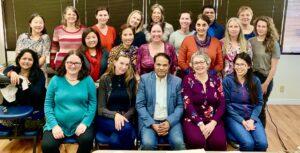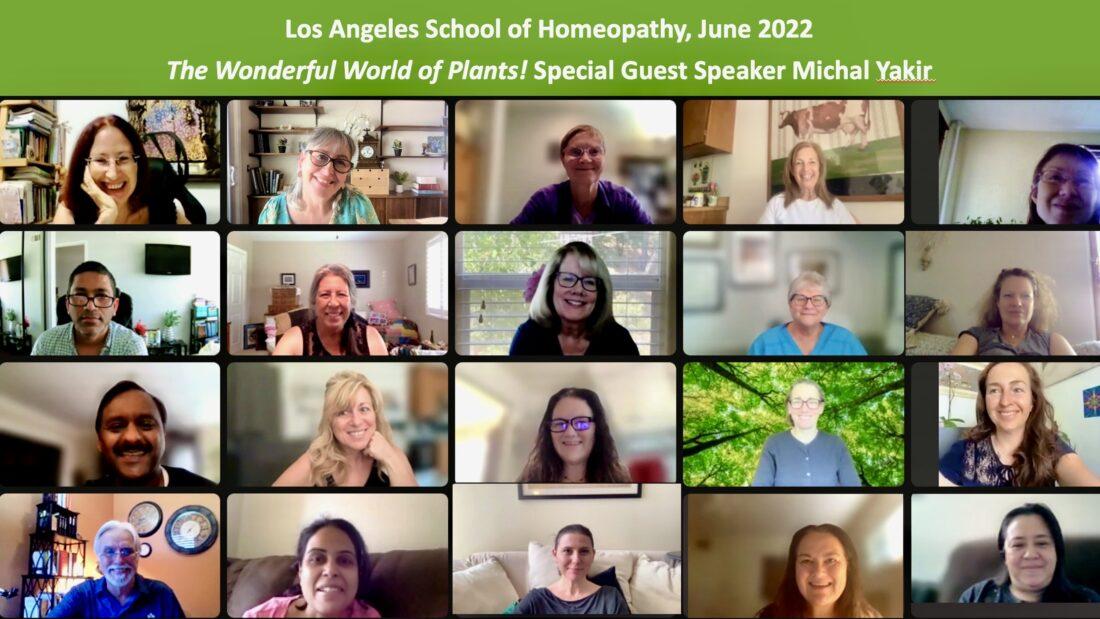Field Trip to Boiron History of Homeopathy

SONY DSC
Homeopathy was first mentioned by Hippocrates (462–377 BC), but it was a German Physician, Samuel Hahnemann (1755–1843), who established Homeopathy’s basic principles:
- Law of similarity
- Direction of cure
- Principle of single remedy
- The theory of minimum diluted dose
- The theory of chronic disease
In Homeopathy, diseases are treated with remedies that in a healthy person would produce symptoms similar to those of the disease. Rather than fighting the disease directly, medicines are intended to stimulate the body I want immune system to fight the dis-ease. By the latter half of the 19th century, Homeopathy was practiced throughout Europe as well as in Asia and North America. Most of the Royals in Europe were being treated by homeopathy, today the Royals in the UK still use homeopathy.
Homeopathy has been integrated into the national health care systems of many countries including India, Mexico, Pakistan, Sri Lanka, Canada, Germany, France and the United Kingdom. While Homeopathy enjoys popular support in many countries, it almost disappeared in the United States in the 1920s, due largely to the efforts of the pharmaceutically controlled medical establishment.
Today, however, more and more people are turning to this safe, non-toxic alternative form of treatment. Homeopathy is presently enjoying a worldwide renaissance, and the Los Angeles School of Homeopathy helps meet the growing need for competently trained Homeopaths.
Great online seminar with the world famous Michal Yakir
Facts of Homeopathy
Homeopathy emerged over 200 years ago, Homeopathy in the US is still relatively small compared to the rest of the world. The success of Homeopathy has been clearly documented: First in Europe in the 1820’s and 1830’s during cholera and typhoid epidemics, as well as in the United States during the deadly flu pandemic of 1918. Statistics showed that Homeopaths had a death rate of only 1.05%, in comparison with over 30% under allopathic care, and even up to 60% at times.
- All Homeopathic remedies in the US have been FDA regulated since 1938
- Remedies are non-addictive and safe medicines for everyone to take
- Homeopathy is safe for infants, children, women during pregnancy, adults and animals
- According to the US Government’s National Institute for Health there have been no known side effects for the past 200 years
- A true homeopathic remedy has never been recalled
- A homeopathic remedy has never caused death
- Second leading alternative therapy in the world and still growing
- Remedies are inexpensive
- 400 million worldwide use homeopathy
- 6 million people in the United States use homeopathy as their primary form of medicine
- Growth rate is 12% each year
In the First World War, there was a Homeopathic medical corps, staffed by 100 nurses, 22 physicians and two dentists, all Homeopaths. In 1922 President Harding, whose father served as a Homeopathic physician in the Civil War, hosted a convention of Homeopaths at the White House. The only monument to an MD in Washington D.C. is dedicated to Samuel Hahnemann MD, the founder of Homeopathy.
Classical Homeopathy
Homeopathy literally means “similar suffering”. What produces symptoms in a healthy person cures the same illness in a sick person.
Homeopathy recognizes that each person is unique.
For example, one person’s headaches are different from another’s. A classical Homeopath treats the whole person, not just the symptoms. Addressing these levels in each person or animal –physical, emotional, and mental -are viewed within one therapeutic ideal. There are not many medical offices where a patient can talk about their migraines, anxiety, bowel movements, skin eruptions, low libido and dreams all in one place. Homeopathy treats the whole person, not just individual parts.
We recognize the deep inner connections the body shares as a whole and the intimate connections between mind, body and spirit.

A Career as a Homeopath
Demand for well-trained, professional Homeopaths is increasing, as this area of natural health is becoming more widely accepted by health professionals and the public. With intensive training over the three-year course, Los Angeles School of Homeopathy graduates enter professional practice possessing a sound education that enables them to handle the demands of a Homeopathic practice in the 21st century. There are opportunities to start your own practice locally and internationally.
The United States government does recognize the natural health industry in an increasingly significant manner, therefore more opportunities are arising for qualified Homeopaths within the conventional health care industry. This will differ from state to state.
Homeopathy in the United States is continuing to experience significant growth as more and more Americans discover firsthand the benefits of using Homeopathic treatment. Homeopathy is used by doctors, nurses, surgeons, plastic surgeons, veterinarians and many other healthcare professionals.
In pharmacy, dentistry, nursing, midwifery and podiatry, practitioners use Homeopathy for their patients within the bounds of their profession.
The Los Angeles School of Homeopathy remains at the forefront of evolutionary Homeopathic education, and is proud of the caliber of the skilled Homeopathic practitioners who graduate from its course.
World Wide Homeopathy
Currently, it is estimated that 400 million people worldwide use Homeopathic medicines as their primary choice of medicine. This number is growing at a breathtaking rate. Britain and India have government-run Homeopathic hospitals. In many European countries, Homeopathic treatment is state-funded and receives medical insurers’ support. Homeopathy remains very popular in South America, South Africa, Australia and the United States.
The World Health Organization has stated that Homeopathy is the second largest growing form of medicine worldwide. More and more people are looking for a treatment that heals the whole body, not just the physical; that treats the root of the problem, not just the symptoms; that is natural and chemical-free and non-addiction forming: Homeopathy is such a therapy.

